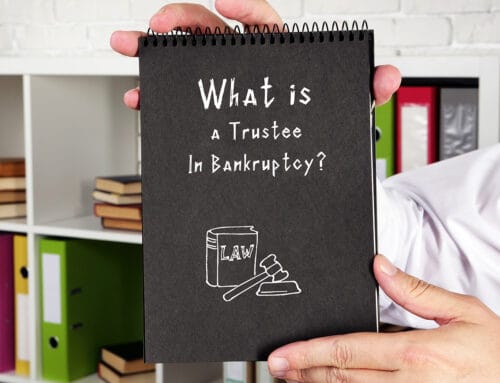Common Mistakes Made That Could Negatively Impact a Potential Bankruptcy
If filing for bankruptcy seems just over the horizon, it’s only natural to be scared. Bankruptcy is a big deal, and can follow you for the rest of your life. When people are afraid, or embarrassed, they often engage in behaviors that are counterproductive. While to err is human, of course, when it comes to bankruptcy, there are a number of common mistakes that could negatively impact your bankruptcy — or in the severest of cases, actually land you in jail.
1. TRANSFERRING ASSETS
The court doesn’t take kindly to people who try to duck bankruptcy laws. Often, this comes in the form of transferring or giving away assets to a child’s name or a relative in an attempt to mask what they have. This is a transparent foolhardy move, and something that is almost impossible to get away with.
2. SELECTIVELY REPAYING LOANS
If you repay a relative or friend in the year prior to filing for bankruptcy, or if you repay any creditor within 90 days of filing, this could be considered a “preferential transfer.” Selectively repaying loans might result in a bankruptcy trustee filing an adversarial proceeding, which would require the person you paid to return the money, so that it could be redistributed those funds equally to your creditors. This might not seem like the biggest deal, but do you really want your bankruptcy trustee to sue your mother? Probably not.
3. CONCEALING OR LYING ABOUT ASSETS
Bankruptcy laws require that you fully disclose all of your assets, which means as a debtor it is your obligation to ensure that all of your assets are accurately reported and fully accounted for. Lying about or concealing assets is a form of bankruptcy fraud, a white-collar crime that “carries a sentence of up to five years in prison, or a fine of up to $250,000, or both. Even just intending to commit bankruptcy fraud may be punishable” [Cornell Law]. The FBI fraud division, IRS auditors, and the U.S. Trustee Program examine all bankruptcy filings. Even if assets are not listed, they will be found, leading to the dismissal of your petition and likely criminal charges.
4. HIDING CREDITORS
Just like how you’re required to disclose all of your assets, you are also required to disclose all of your debts, including, but not limited to: debt on credit cards (zero balance cards aren’t necessary though); charged-off debts, or debts that have been sold to another creditor; debts that involve foreclosures and repossessions, as these may still have outstanding balances. When filing for bankruptcy you absolutely must list out every person or company to which money is owed. You cannot pick and choose creditors.
5. RAIDING YOUR RETIREMENT ACCOUNTS
It might seem like a good idea, but dipping into your 401(k) to pay off some of your debt is unwise. Most retirement accounts are considered protected assets, meaning they’re exempt when you file. Your retirement accounts are your nest egg, and should be left untouched until your golden years — especially since they were never at risk of being seized in the first place. Your future self will thank you.
6. CREDIT CONSOLIDATION
Even if you negotiate lower payments or restructure your debt outside of bankruptcy, your credit score will be adversely affected and you could incur tax liability. Remember, too, that “not-for-profit” doesn’t mean “free.” These organizations are often funded by banks and the credit card industry to try to collect as much money from you as possible.
7. USING CREDIT CARDS PRIOR TO FILING
There are specific rules concerning how much you can charge to a specific creditor and what you can purchase prior to filing a bankruptcy. Failing to comply with these rules could result in a denial of your discharge or a delay in the process. Generally speaking, any charges you make within 90 days of filing are left out of your bankruptcy debts. Meaning, once you come out the other side of bankruptcy proceedings, you’ll still owe your creditors for these charges.
8. BURYING YOUR HEAD IN THE SAND
Waiting too long to file for bankruptcy because it’s scary, or overwhelming, can only lead to more problems in the end. Burying your head in the sand like an ostrich, as inclined as you might be to do so, can can result in wage garnishment, bank levies, and liens on real estate. These are all major headaches!
Strategy is a huge component of a successful bankruptcy. Proper planning and preparation are critical. If you are concerned about debt, don’t delay. Contact someone like me. I offer a free consultation.
Disclaimer: This article is intended for informational purposes only and does not constitute legal advice. For personalized assistance, please contact our office at (805)494-8400.





